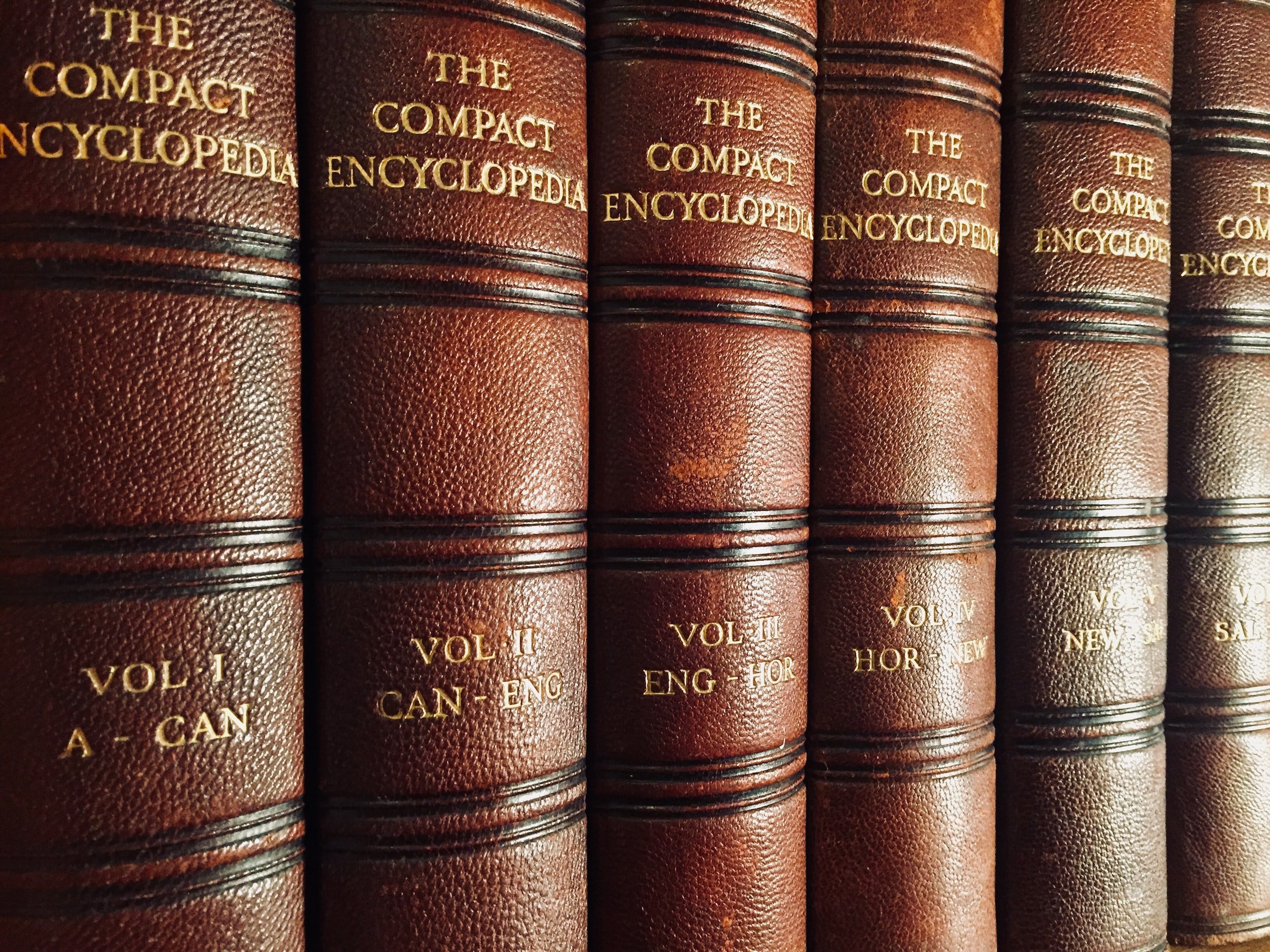
Philosophical notes…
On 17th Century Information Overload
“The word ‘information’ predates Gutenberg (it was invented in the 14th century). But once printing took off and books proliferated, new kinds of books had to be invented to track, organize and summarize the relentless flood of data they generated: encyclopedias, bibliographies, dictionaries, multilingual bibles, summaries, herbals. Oxford’s Bodleian Library was founded in 1598, opened to scholars in 1602 and by 1605 produced the world’s first printed library catalog. Book-review journals began to appeal in the late 17th century, a sign that readers could no longer hope to keep up with the deluge of print. But these reference works were not entirely new or Western: Ann Blair, a Harvard historian of information, finds plenty of examples before Gutenberg and beyond Europe.”
Jonathan Rose, “The Oxford Illustrated History of the Book’ Review: Our Back Pages” - https://www.wsj.com/articles/the-oxford-illustrated-history-of-the-book-review-our-back-pages-11671809077.
On Complexity
“Yet in making questions of human desire strictly identical to numbers, Bhattacharya, like von Neumann, has forgotten a basic truth about the relationship of logic to the complexity of life... Every mathematical rendering of objects that are not purely mathematical is a simplification, an ‘as if,’ and that ‘as if’ should always come with a caution. When you produce or encounter such a logical simplification, do not forget to ask: How ‘sufficiently like’ is the similitude to the object of study? And how do I decide whether the difference is for good or ill? A great deal hinges on the answers to those questions, not least when the simplification on offer is of the human psyche... We need institutions capable of generating such engagements between the different ways of discovering the human, and we need disciplines open to such interactions.”
David Nirenberg, “The World John von Neumann Built” - https://www.thenation.com/article/society/john-von-neumann/.
On Imaginative Research
“Neurolinguists sometimes grumble that we know oh-so-little about language in the brain, and that there is still much to figure out. True, but what has been achieved is remarkable, especially in recent times... Still, there is a risk we take it too far, that we fail to see the difference between genuine aspects of the language calculus in the brain and what we can just model mathematically or simulate easily and elegantly ‘in silico.’ No climate scientist would think a heat wave is a computational process just because they can simulate it in a computer. For those who study the mind and brain, making such distinctions is much harder. Where does the language calculus begin and end? Is it just about syntax, or do we also compute sound and meaning? And what about the rich experiential dimension of language? It is perhaps ironic, but ultimately a blessing, that no calculus, no algorithm, will give us these answers — only clear thinking, open criticism, and tireless, imaginative research.”
Giosuè Baggio, “Finding Language in the Brain” - https://thereader.mitpress.mit.edu/finding-language-in-the-brain/
On Library Myths
“But the library’s reputation as a magical irreplaceable repository of unique items only became solidified after Carl Sagan said on a TV programme that was broadcast worldwide... In eight minutes of television, Sagan invented out of thin air the myths: that the library was a unique institution, with no parallels; that lots of knowledge was lost along with the library; that Hypatia’s death had something to do with the library’s destruction; for that matter, that Hypatia had anything at all to do with the library. All of these are pure fiction, without any basis of any kind. Sagan also repeats a bunch of myths that he didn’t invent: that religion caused the onset of a ‘Dark Age’ and centuries of superstitious ignorance; even the idea that there was still a library in the temple of Serapis when it was destroyed in 391 CE, which is doubtful. How influential is Cosmos? Insanely influential. I talked about this a little back in 2016, but it bears repeating. Many articles, books, documentaries, and videos about the history of science still have no hesitation over citing Cosmos as the only authority they need. This is crazy, because at least half of what Sagan says about history is outright false, but his authority is still seemingly unimpeachable today, forty-two years after the programme first aired.”
Peter Gainsford, “The Library of Alexandria and Its Reputation” - http://kiwihellenist.blogspot.com/2022/11/alexandria.html.
On Apologies
“Rituals of atonement and forgiveness lie at the heart of most religions, a testament to the human capacity for grace… Apology, though, has a different history… The practice of establishing and enforcing strict requirements for public apology is not a human universal. It happens only here and there, and now and again. You see it in fiercely sectarian times and places—like twenty-first-century social media, or seventeenth-century New England… For the things they said—words whispered, grumbles muttered, prayers offered, curses shouted—dissenters, blasphemers, and nonconformists in seventeenth-century New England faced censure, arrest, flogging, the pillory, disenfranchisement, exile, and even execution… Demanding public apologies on daytime television and deeming those apologies insufficient was an occasional thumb-wrestling match between two seven-year-olds sitting on a green vinyl school-bus seat on the ride to second grade compared with the daily, Roman Colosseum-style slaughtering that takes place online. It’s not that people don’t do and say terrible things for which they ought to atone. They do. Some of those things are crimes. Many are slights. Very many are utterly trivial. A few are almost unspeakably evil. But, on Twitter at its worst, all harm is equal, all apologies are spectacles, and hardly anyone is ever forgiven.”
Jill Lapore, “The Case Against the Twitter Apology,” - https://www.newyorker.com/magazine/2022/11/14/the-case-against-the-twitter-apology-matthew-ichihashi-potts-forgiveness-danya-ruttenberg-on-repentance-and-repair. The concluding chapters of Arendt’s The Human Condition, focuses on the broad need for forgiveness in political life.
On Printing Religion
Here’s a recent interview on my book Printing Religion after the Enlightenment for faculti.net - https://faculti.net/printing-religion-after-the-enlightenment/. This is an interesting new repository of brief academic summaries.
On Historical Empathy
“Well, to think responsibly about the past requires thinking oneself into the minds of people who no longer exist, who lived in a world that neither you nor I have ever visited, and who inherited assumptions from their predecessors that are quite different from what we have inherited from ours. What is sometimes called the historical imagination is required to set aside one’s own assumptions about what’s right and wrong—or at least explicitly to acknowledge those assumptions—and to try to see the world through the eyes of people whose attitudes one might find loathsome. That’s not easy to do, but every good historian makes an effort to do that. Now, that doesn’t mean that one suspends judgment and comes away without any preference for one point of view or another. What I’m trying to say is that we can be critical and even ashamed of much of our history and, at the same time, accept that it’s our history rather than to say, you know, this has nothing to do with me because I am indignant or outraged by it. I think it helps to acknowledge that posterity is likely to judge us as fallible or foolish or worse, just as we are inclined to judge our predecessors.”
Andrew Delbanco - https://www.neh.gov/article/open-questions-andrew-delbanco
On Plurality
“All people are different people.”
A pithy summary of the intersubjective imperative of Hannah Arendt’s vita activa. Karl Popper’s paradox of tolerance can also be felt in such aphorisms.
On Looking at Consciousness
“To the man with a scanner, everything looks like a brain. But of course, there are other tools for exploring what consciousness might be — not just what it is for, but what it is like... But what of Thomas Nagel, whose classic essay ‘What Is It Like to Be a Bat?’ set the parameters of House’s search? It’s true that a number of neuroscientists and their readers have contested Nagel’s claim that there is something it is like to be a bat, and that this subjective dimension of consciousness is inaccessible to objective study. One can imagine why practitioners dedicated to just such studies might object to such prima facie limits. But House adopts Nagel’s perspective, albeit without naming him. ‘The one and only thing we know for certain for every one of us,’ House writes early on, is that ‘there is something that it is like to be us.’ And for both men, that ‘something’ remains just beyond the grasp of anyone but the person experiencing it. Subjective knowledge of me never evolves into objective knowledge of you. Try as we might, ‘we can only ever scratch the surface of what really goes on inside’ others. While this view leads Nagel to pessimism, House holds out hope that if we just keep scratching, we’ll bridge the divide and explain what it is like to be a bat — or any other conscious being.”
Henry M. Cowles, “What Is It Like to Have a Brain? On Patrick House’s ‘Nineteen Ways of Looking at Consciousness,’” https://dev.lareviewofbooks.org/article/what-is-it-like-to-have-a-brain-on-patrick-houses-nineteen-ways-of-looking-at-consciousness/. The need to bring together first person phenomenological analysis of consciousness with third person neuroscientific scanning the brain remains a vital future task it seems.
On Philosophical Style
“While there’s a role for philosophy written in this way, Setiya’s specific subject seems to me to demand something else. When someone’s trying to make me feel better about the dead-serious subject of life’s shittiness, I want them fully engaged in the task, and I want the delivery to recall to me what isn’t shitty about life: what’s beautiful, vivid, and free. The most beloved philosophical pessimists — Schopenhauer, Aurelius, Kierkegaard, Nietzsche, Sartre, Camus — paradoxically pull this off. They’re each distinctively themselves on the page, and their conviction that the world is shot through with ugliness and futility is conveyed in such artful, unfettered language that the medium serves, at least partly, to undermine the message. Reading them is like watching someone teeter on the edge of a crater, then dart back at the last minute, with a skip and a chuckle. The abyss is still there, they’re already sliding back toward it, we know it’ll get them, get us all, in the end — but what a line, what a moment, what a flex! It makes you glad to be alive, just to have witnessed it. ”
Helena de Bres, “The Philosophy of Shittiness: On Kieran Setiya’s ‘Life is Hard,’” https://lareviewofbooks.org/article/the-philosophy-of-shittiness-on-kieran-setiyas-life-is-hard/. Interesting summary of the recent “Life is Hard.” The reviewer echoes a sentiment that arises in the Suffering: Comparative Studies course I have been teaching this semester. It compares similar philosophers in a way that allows students to delve deeply into their respective talent for facing the edge of the cliff, but pull back to affirm life’s beauty and freedom.










